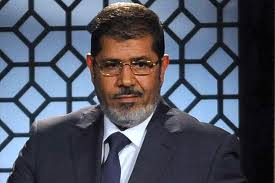My simple thesis on Egypt ... There are basically four primary forces in the country and these forces represent collectively a minority within Egypt as a whole, with the remainder being the very poor, the apathetic or leave me alone majority.
1. The Army, all powerful, has basically two main goals, preserve the peace with Israel and preserve its economic privileges, it Doesn't really want more than this.
2. The Mubarak regime supporters. Basically people who supported and / or benefited from Mubarak economic policies and support an authoritarian state focused on economic growth.
3. The Islamists. People who ultimately wish for a Caliphate but are willing to settle for lesser options, essentially desire an eventual integration between the state and Islam on all facets.
4. The Revolutionaries. Many differing varieties united in opposing torture, being pro freedom of expression and democracy. Few believe in total equality between ALL citizens and almost all are anti corruption,
My simple thesis is that whenever three of these forces cooperated stability was possible and progress was made. Anytime only two of the four dominated the scene extreme volitality ensued. This has been the case since the end of the first phase of Egypt's January 25, 2011 Revolution.
Three years on, Egypt and the world need to learn this!
AA
January 25, 2014










